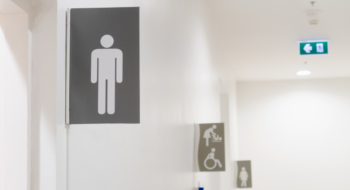They seem to come out of nowhere. One minute you’re chatting and sud—den—ly you’re hiccupping. What’s going on?
Long story short: Your diaphragm is experiencing a spasm.
The diaphragm is a wide, thin muscle between your lungs and your abdomen. When your diaphragm relaxes, your lungs expand and you breathe in. When it contracts, you breathe out.
Now and then, your diaphragm spasms and things get out of sync.
What causes hiccups?
Not much is known about the precise cause of hiccups, says Tidelands Health family medicine physician Dr. Michelle McCauley, who practices at Tidelands Health Family Medicine at Andrews.
Physically, hiccups happen when there’s a misfire along the phrenic nerve that connection your brain and diaphragm. The exact trigger can vary, though.
Eating too much or too quickly can set off a round of hiccups, as can drinking too much. Acid reflux can trigger them. So can anxiety or stress. Medical procedures that require anesthesia can also produce hiccups.
While hiccups are a temporary thing for most of us, for a few they can be a long-term problem. Charles Osborne, for example, lived with hiccups for 68 years, earning the Iowan a spot in the Guinness Book for World Records. Osborne died in 1991, by which time Guinness estimated he had hiccupped 430 million times!
You shouldn’t wait seven decades to have a prolonged bout of hiccups checked out, since an ongoing case of them could be a sign of something is amiss in your brain or central nervous system.
“Anything greater than 48 hours would be a reason to consult a medical professional,” Dr. McCauley says. Doctors can treat continued hiccups with prescription medication if needed.
How to stop hiccups
Everybody, it seems, has their favorite cure for hiccups. Some say to hang upside down. Others will tell you to drink a glass of water quickly or bite on a lemon. Your more playful friends may try to scare them out of you. There’s no scientific proof any of these methods work, however.
What does seem to work? Changing your breathing rhythm.
If you have a bout of the hiccups, slow your breathing, holding your breath or breathing into a paper bag. Those last two increase the amount of carbon dioxide in your blood, which causes your diaphragm to relax so you can bring in more oxygen.

Dr. Michelle McCauley
Physician, Tidelands Health Family Medicine at Andrews
Call to Schedule
Bio
Dr. Michelle McCauley is a family medicine physician at Tidelands Health Family Medicine at Andrews. She is accepting new patients.
Learn MoreMedical Education
Education
- Edward Via College of Osteopathic Medicine – Carolinas Campus, Doctor of Osteopathic Medicine
Residency
- Tidelands Health MUSC Family Medicine Residency Program, Family Medicine
Meet the Expert
Dr. Michelle McCauley
Call to Schedule
Dr. Michelle McCauley is a family medicine physician at Tidelands Health Family Medicine at Andrews. She is accepting new patients.





